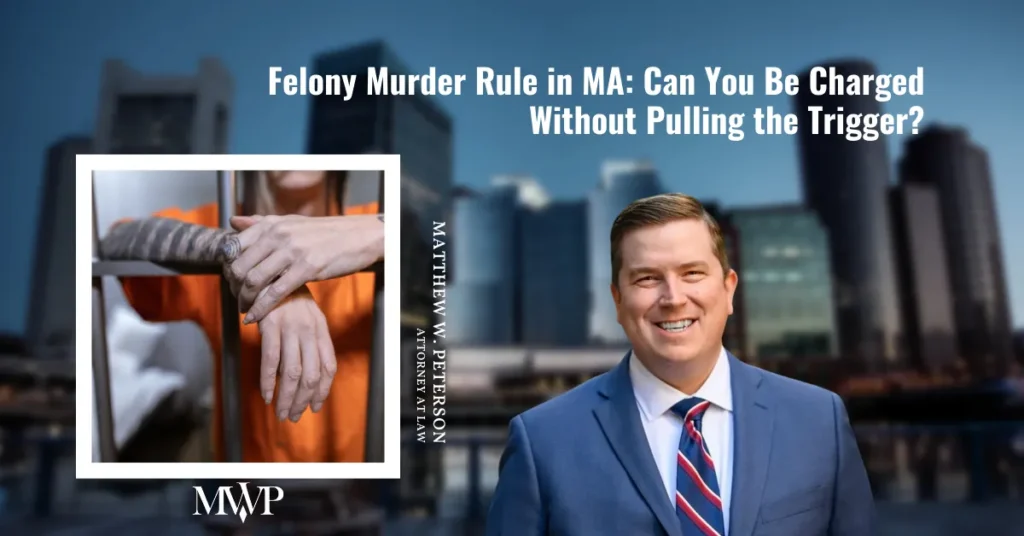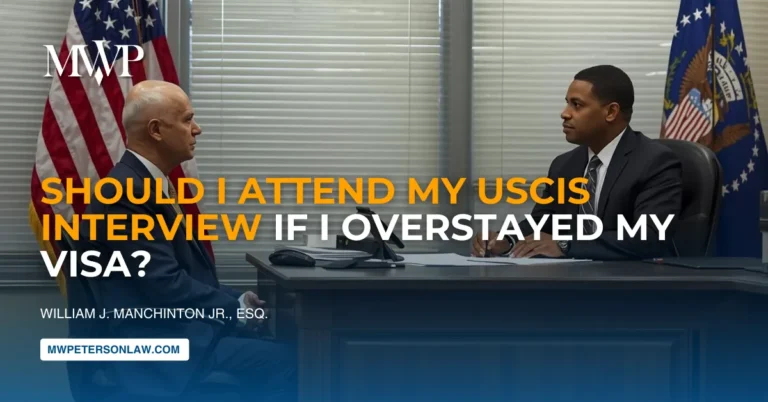Understanding the Felony Murder Rule in Massachusetts is critical—whether you’re researching the state’s criminal laws or you or a loved one are facing serious charges. This blog provides a simplified overview of the Massachusetts felony murder rule to help clarify this complex and often misunderstood legal doctrine. However, every criminal case is different, and felony murder charges carry severe penalties, including potential life imprisonment.
If you or someone you care about is facing felony murder charges in Massachusetts, don’t rely on general information alone. Contact the Law Office of Matthew W. Peterson today to speak with an experienced Massachusetts criminal defense attorney and begin building a strong, personalized legal defense.
What is the Felony Murder Rule?
The Felony Murder Rule refers to the legal doctrine that broadens the crime of murder. It essentially states that when someone is killed during the commission of a felony, the offender and their accomplices may be found guilty of murder. In legal terms, it allows the intent to commit a felony to satisfy the malice element of a murder charge. More simply, even if you didn’t “pull the trigger”, if you intended to act in the crime that ended with someone dead, you may be charged with murder.
Felony Murder Rule in Massachusetts Before 2017
Before 2017, the State of Massachusetts applied the Felony Murder Rule in two different ways, depending on the severity of the felony crime involved:
- First Degree Murder: A defendant could be charged with first-degree murder if a killing occurred during the commission of a felony that could be punished by a life sentence (crimes like armed robbery, rape, and home invasion)
- Second Degree Murder: A second-degree murder charge would be given if a killing occurred during the commission of an inherently dangerous felony that wasn’t punishable by life imprisonment
Commonwealth v. Brown (2017)
In a 2017 case called Commonwealth v. Brown, the Massachusetts Supreme Judicial Court significantly narrowed the Felony Murder Rule. The Court held that the scope of felony-murder liability should be narrowed, holding that a defendant cannot be convicted of murder under any legal theory (including felony-murder) without actual proof of one of the three prongs of malice.
This means that the prosecution must prove actual malice as opposed to “constructive malice” from the underlying felony committed. Additionally, the second-degree felony murder charge was eliminated, emphasizing the fact that the prosecution must prove actual malice.
Felony-murder is no longer an independent theory of culpability for murder, but is limited to its statutory role as an aggravating element. This permits a jury to find a defendant guilty of murder in the first degree when the murder wasn’t premeditated nor committed with extreme atrocity, but instead committed in the course of a felony punishable by life imprisonment.
Current Application
In Massachusetts today, the Felony Murder Rule is constitutional, and may be utilized, but it has been significantly narrowed. Here’s how it looks now:
The prosecution must now prove one of the three prongs of malice to successfully convict a defendant of murder. The three prongs of malice are:
Intent to kill
Intent to cause grievous bodily harm
Intent to commit an act that would create a plain and strong likelihood of death or serious bodily harm
Felony murder can still be used as an aggravating factor, meaning it can elevate a murder charge to the first-degree when a death occurs during certain felonies punishable by life imprisonment.
What to Do if Charged with Felony Murder
The most important thing to do if you are facing felony murder charges is to hire a good attorney. These charges are complicated, and an experienced attorney can help you navigate and understand what you’re facing. At the Law Office of Matthew W. Peterson, our attorneys are some of the few who have been deemed qualified to represent murder cases in the state of Massachusetts. We understand charges like felony-murder, and can use our experience and determination to help craft creative defense strategies.
What are Some Defense Strategies Against a Felony-Murder Charge?
Since 2017, there has been a great emphasis on the prosecution proving actual malice in the commission of a murder. One of the most common defense strategies against a felony-murder charge is proving that the defendant does not meet one of the three prongs of malice mentioned above. Additionally, an attorney could dispute the production on lack of evidence or intent, an element of self-defense, or dispute the underlying felony altogether.
Contact Us Now
These charges are serious, and if you or a loved one are facing them don’t hesitate to reach out. At the Law Office of Matthew W. Peterson, we are ready to help, and our experienced attorneys will fight for your rights. We practice in the greater Boston area, visit our website to see a full list of the courts we service. Call us today at 617-295-7500 or send a message through our website.











